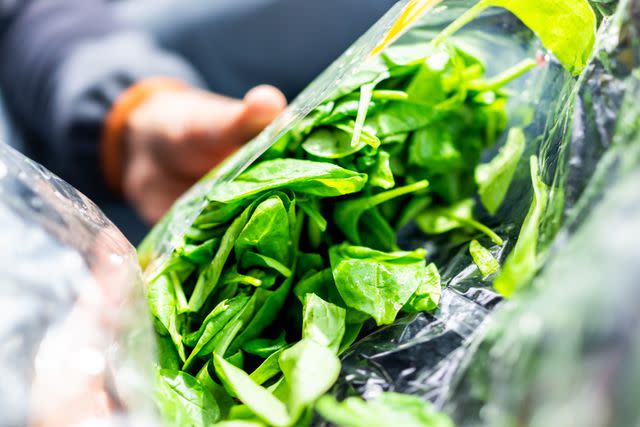Bagged Spinach, Kale, And Collard Greens Recalled Over Possible Listeria Contamination
The recalled products were distributed through retailers in Maryland, Massachusetts, New Jersey, New York, Virginia, and Pennsylvania.

krblokhin/Getty Images
Check your refrigerators!
Maryland-based Lancaster Foods has issued a voluntary recall of three brands of bagged spinach, kale, and collard greens produced at the company’s facility in Jessup. Impacted brands include Robinson Fresh, Lancaster, and Giant distributed through retailers in Maryland, Massachusetts, New Jersey, New York, Virginia, and Pennsylvania.
U.S. Food & Drug Administration’s (FDA) announced the recall after a recent sample test of Chopped Kale Greens resulted in the discovery of Listeria monocytogenes. No related illnesses have been reported to date.
Although the products in question are beyond their “BEST IF USED BY” date of May 1, officials are concerned that people could potentially still have them in their refrigerators. Customers are encouraged not to eat the impacted greens and to throw them away or return them for a refund.

krblokhin/Getty Images
The full list of products and product codes that are subject to recall as well as photos of the labels can be found here.
Consumption of food contaminated with Listeria monocytogenes can cause listeriosis, a serious infection that primarily affects older adults, persons with weakened immune systems, and pregnant women and their newborns.
Listeriosis can cause fever, muscle aches, headache, stiff neck, confusion, loss of balance and convulsions sometimes preceded by diarrhea or other gastrointestinal symptoms. In pregnant women, the infection can cause miscarriages, stillbirths, premature delivery or life-threatening infection of the newborn. In addition, serious and sometimes fatal infections in older adults and persons with weakened immune systems can occur.
For more Southern Living news, make sure to sign up for our newsletter!
Read the original article on Southern Living.

